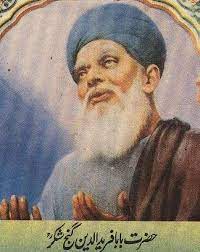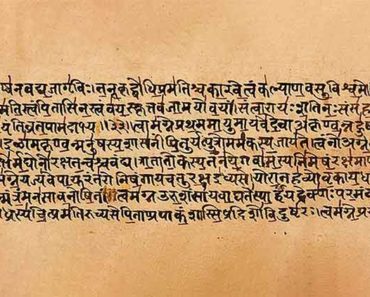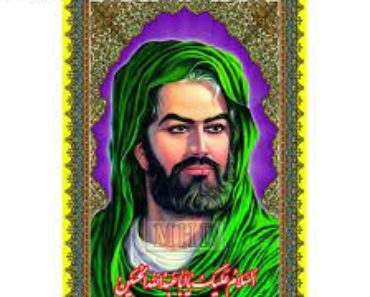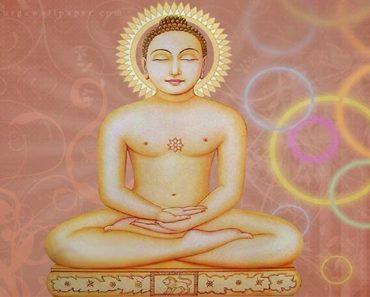Table of Contents
Introduction

Moinuddin Hasan Chishti founded the Chishtiya Sufi order in India and was a respected Sufi saint, philosopher, and spiritual teacher. The founder of India’s Sufi movement, Chishti, introduces the syncretic element to Indian culture. In addition to prayers and meditation, he was India’s first Islamic mystic to advise using music to create a communion with God. Thousands of people visit his shrine in Ajmer, Rajasthan, every day because of his Hindu and Muslim fame and the belief that he can help solve any problems. Moinuddin Hasan Chishti founded the Chishtiya Sufi order in India and was a respected Sufi saint, philosopher, and spiritual teacher.
Thousands of people visit his shrine in Ajmer, Rajasthan, every day because of his Hindu and Muslim fame and the belief that he can help solve any problems. Throughout his sermons, Chishti emphasized the importance of loving all of our fellow animals, regardless of religion or social status. His essential teachings are charity and compassion for the poor and needy, leading a pure life of devotion to the divine, and achieving oneness with God in the service of his creations. The lessons in ‘be present in every moment,’ published by babbling Parveen, are essential, timeless ideas from Chishti that encourage one to fully and selflessly live each minute of one’s life.
The Chishti’s engage in five fundamental religious practices:
1) Pronouncing Allah’s names aloud and sitting in the proper position at the proper times.
2) Silently reciting Allah’s names.
3) Retaining control of one’s breathing.
4) Mystic pondering engrossment
5) There are forty days or more of spiritual imprisonment for prayer and reflection in a lonely corner or cell.
Teachings of Khwaja Moinuddin Chishti

1) Mysticism and mystics: He clarifies, “Mysticism is a phrase, not a practice.” Knowing about and studying mysticism does not make one a Sufi. A mystic’s inner existence is what separates them. The divine wisdom possessed by a mystic must be exact. He should submit to God’s will rather than his own. His demeanor should be humble, friendly, and kind, with no suggestion of arrogance, conceit, or superiority. He should be content, meek, and gentle, entirely trusting in God. Trying to attain popularity, applause, or renown is pointless and fruitless. On the contrary, getting closer to the friend and gaining approval should be the primary goal.
2) Discipline: He believes that a student must give his entire self and will to his spiritual master and teacher. He recognized that by faithfully following and obeying his spiritual leader, the spiritual disciple should aim to reach the point where his spiritual leader becomes his disciple’s comb. A spiritual disciple’s motto should be service, love, obedience, and faith in his spiritual guide and instructor to achieve perfection.
3) Spiritual guide: In terms of the spiritual guide, he describes himself as a mentor, friend, and philosopher for the moral, spiritual, and ethical development of his disciple.
4) Love: Whoever pursues the path of love loses his name and identity. Because love is all-encompassing and universal, the lover’s heart is a love fireplace. Fire consumes anything that is brought in. The most powerful of all fires is the flame of love. Obedience to and dread of the friend characterize deep love. There are three types of love repentance, according to him. Firstly, it’s because of humiliation.
The second is to refrain from sinning. Finally, people must purify themselves from within by rejecting harshness and hostility. The idea of treating the friend with restriction is ruled out by genuine attachment. Love comes from God rather than from ourselves. As a result, love possesses a divine character.
5) Prayer: He emphasizes the importance of prayer, describing it as “a great necessity for the growth of the soul.” He gives the word “prayer” a broad sense by not limiting its meanings, expressions, or meaning. He says that prayer encompasses selfless service, sympathy, and a sense of community. As a result, assisting the weak, aggrieved, needy, feeding the hungry, and freeing the prisoner are all prayers.
Seeing six things, according to the mystic, is prayer:
a) Seeing one’s parents and greeting them with salaam in the morning.
b) To love and be loved by one’s children.
d) Having access to the Holy Quran.
d) To look reverently at the learned face.
f) To take a look at the Kaaba Gate.
f) By gazing into the eyes of one’s spiritual leader and instructor, one might devote oneself to the service of one’s spiritual leader and instructor.
6) The enlightened: He says that the three traits that lead to enlightenment are fear, respect, and shyness.
The fulfillment of the enlightened is predicated on the loss of self. An enlightened creature is deemed flawless only when all barriers between him and the friend are gone. Either he or the friend must survive (if he refuses to give up) (when all obstacles are removed and there is no separate self anymore).
7) Renunciation: He emphasizes rejection, believing that the ultimate goal should be to have no plans. Losing a goal is the same as achieving it. Everything should be removed from the center of a faultless dervish, including stains, worries, and loads. Nothing or anyone else should have a place in his heart but God Almighty. He should not pursue any other objectives. Nothing should matter to him more than God.
8) Music: He says that sama (music) is constrained by time, location, and community of interest. Through the same, one can achieve God’s nearness. It instills love in the heart, sincerity in the head, unity in the soul, service in the body, and vision in the eye.
9) Fasting: According to him, the actual fast is giving up all religious and worldly pleasures.
Affirmations

1) I accept responsibility for my own life and seek Allah’s guidance whenever I need it.
2) When I’m feeling stressed, I try to keep things as simple as possible.
3) My life’s purpose, I recall, is to adore Allah.
4) I put my trust in Allah’s mercy.
5) I pray to Allah first and foremost.
6) One of my favorite books is My Prophet.
7) I make every effort to remember Allah.
8) I start with myself when I want to make a difference in my life.
9) Exams are a part of life that cannot be avoided. I am patient when they arrive.
10) Allah is the source of my eternal gratitude.
11) Allah rewards me with more when I am appreciative.
12) I use rationality in my situation.
13) I make a list of three things for which I am eternally grateful every night.
14) I seek Allah’s help through patience and prayer.
15) Allah emphasizes His Mercy more than any other characteristic.
16) I try to avoid getting into arguments.
17) My trials serve to bring me closer to Allah.
18) For me, the next planet takes precedence.
19) Without a doubt, I am a believer, and I remember Allah’s generosity.
20) Allah prays back to me when I pray to Him.
21) Gratitude and patience are two of my most basic emotions.
22) I take precautions and place my trust in Allah.
23) When I’m sad, I think of those who don’t have as much as I do.
24) Only beautiful things come out of my mouth.
25) I accept full responsibility for my actions and seek Allah’s help whenever I require it.
26) I try to keep things as basic as possible when I’m stressed.
27) I recall that my life aims to worship Allah.
28) I place my faith in Allah’s goodness.
29) First and foremost, I pray to Allah.
30) My Prophet is one of my favorite books.
31) I try my hardest to remember Allah.
32) I try to avoid getting into arguments.
33) My trials serve to bring me closer to Allah.
34) For me, the next planet takes precedence.
35) Without a doubt, I am a believer, and I remember Allah’s generosity.
36) Allah prays back to me when I pray to Him.
37) Gratitude and patience are two of my most basic emotions.
38) I take precautions and place my trust in Allah.
39) When I’m sad, I think of those who don’t have as much as I do.
40) Only beautiful things come out of my mouth.
41) I accept full responsibility for my actions and seek Allah’s help whenever I require it.
42) I try to keep things as basic as possible when I’m stressed.
43) I recall that my life aims to worship Allah.
44) I place my faith in Allah’s goodness.
45) First and foremost, I pray to Allah.
46) My Prophet is one of my favorite books.
47) I try my hardest to remember Allah.
48) I try to keep as far away from fights as possible.
49) My difficulties bring me closer to Allah.
50) For me, the next planet takes precedence.
51) Without question, I am a believer.
52) The mercy of Allah comes to mind.
53) Allah prays back to me when I pray to Him.
54) Gratitude and patience are two of my most important feelings.
55) I use caution and put my trust in Allah.
56) When I’m sad, I think of others who don’t have as much as I do.
57) Only good things come out of my mouth.
58) I accept full responsibility for my actions and seek Allah’s help whenever I require it.
59) We enlist your assistance and express our gratitude.
60) Continue to pray and make the charity contributions that have been suggested.
61) Whatever good you’ve saved for yourself will be discovered by God. Everything you do is evident to him.
62) Whatever good you’ve saved for yourself will be discovered by God. Everything you do is evident to him.
63) When it comes to people, God is Most Compassionate and Merciful.
64) “This instils hope in you that Allah loves you and will forgive your sins.”
65) Allah will remember me if I remember Him.
66) I put my trust in Allah.
67) Life is full of trials and tribulations. If I remain patient and remember Allah, everything will be well.
68) Allah wants to be merciful to me.
69) Allah is Forgiving, Righteous, and Generous.
70) If I request pardon, Allah, the Most Merciful and Forgiving, will forgive me.
71) Allah appreciates my gratitude, and I understand Allah’s appreciation.
72) My life’s ambition is to draw closer to Allah.
73) I place my faith in Allah.
74) Trials and hardships abound in life. Everything will be well if I remain patient and remember Allah.
75) Allah wishes to show mercy to me.
76) Allah is Merciful, Just, and Generous.
77) Allah, the Most Merciful and Forgiving, will forgive me if I beg for forgiveness.
78) Allah is grateful for my thankfulness, and I am thankful for Allah’s gratitude.
79) My life’s goal is to become closer to Allah.
80) I make a list of three things for which I am grateful every night.
81) I seek Allah’s help via patience and prayer.
82) Allah will always place a higher value on kindness than on any other attribute.
83) I try to keep as far away from fights as possible.
84) My difficulties bring me closer to Allah.
85) For me, the next planet takes precedence.
86) Without question, I am a believer.
87) The mercy of Allah comes to mind.
88) Allah prays back to me when I pray to Him.
89) Gratitude and patience are two of my most important feelings.
90) I use caution and put my trust in Allah.
91) When I’m sad, I think of others who don’t have as much as I do.
92) Only good things come out of my mouth.
93) If I request pardon, Allah, the Most Merciful and Forgiving, will forgive me.
94) Allah appreciates my gratitude, and I understand Allah’s appreciation.
95) My life’s ambition is to draw closer to Allah.
96) Every night, I make a list of three things for which I am grateful.
97) Through patience and prayer, I seek Allah’s assistance.
98) All of Allah’s other qualities pale in comparison to His Mercy.
99) I aim to stay as far away from potential conflicts as possible.
100) I take full responsibility for my acts and seek Allah’s assistance whenever I need it.
101) When I’m stressed, I strive to keep things as simple as possible.
102) My life’s purpose, I recall, is to adore Allah.
103) My trust is in Allah’s benevolence.
104) Allah will always place a higher value on kindness than on any other attribute.
105) I try to keep as far away from fights as possible.
106) My difficulties bring me closer to Allah.
107) For me, the next planet takes precedence.
108) Without question, I am a believer.
109) The mercy of Allah comes to mind.
110) Allah prays back to me when I pray to Him.






